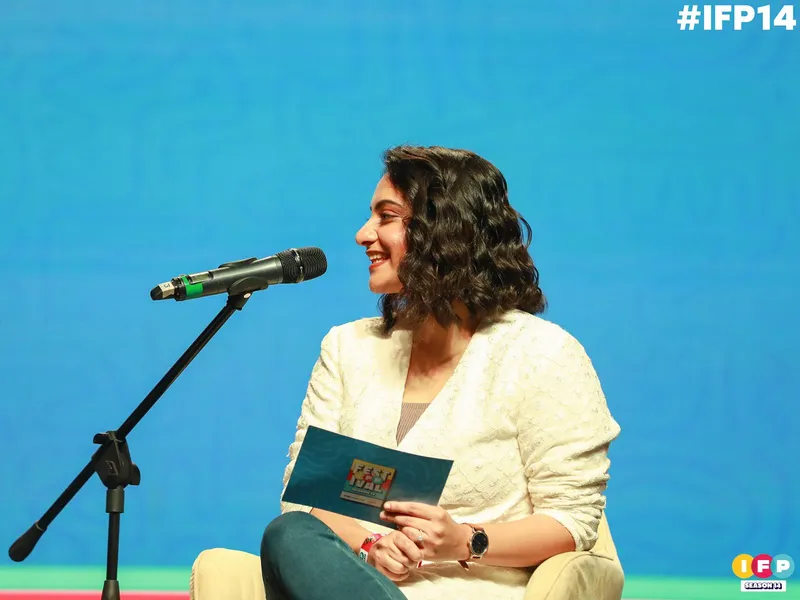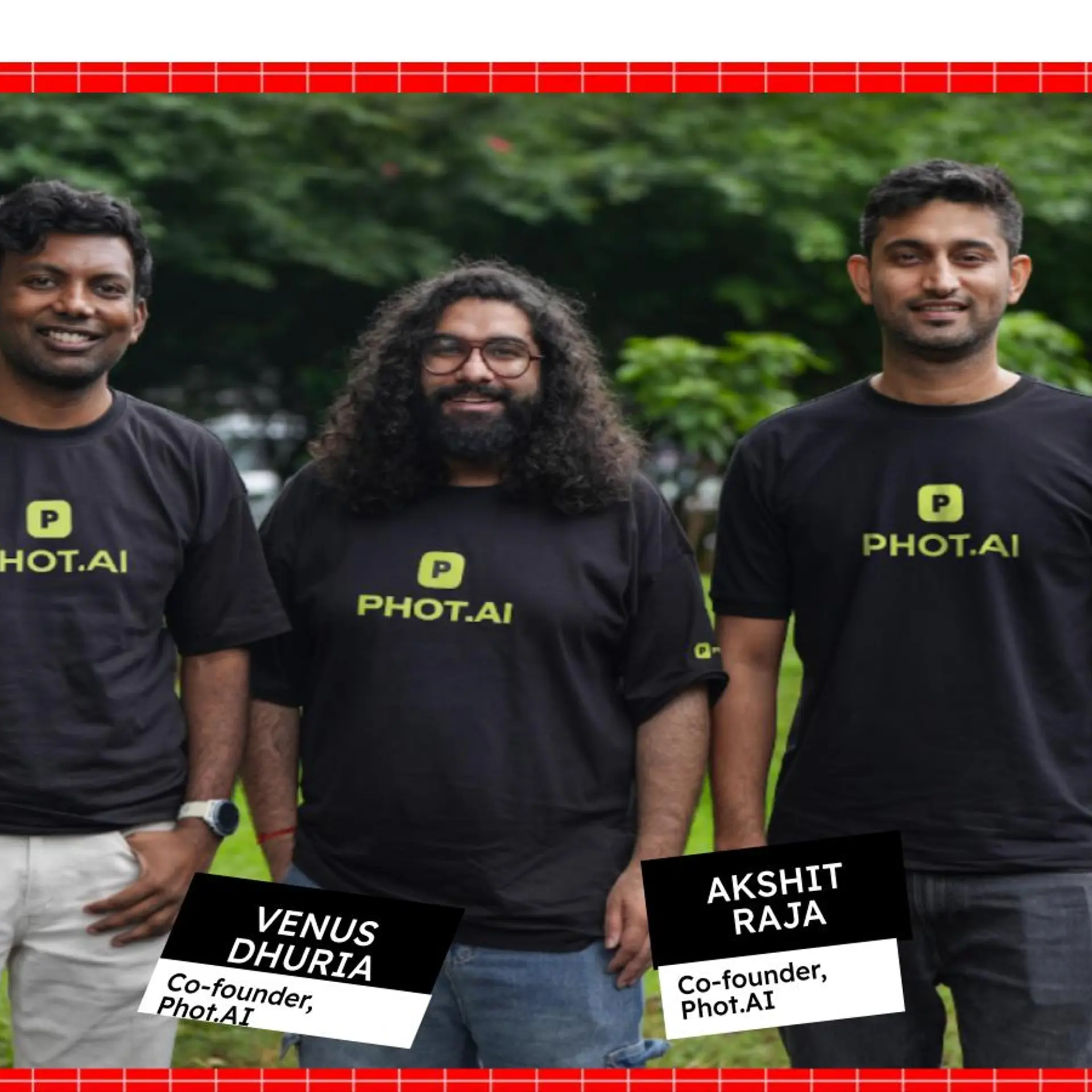[100 Emerging Women Leaders] How Kopal Khanna explored diverse aspects of storytelling with Tape A Tale
In 2017, Kopal Khanna founded Tape A Tale, which has now grown into a leading platform for storytellers, poets, and writers.
In the three months’ break between completing her undergraduate degree in St Stephen’s College and moving to the UK for a master’s at the London School of Economics, Kopal Khanna decided to explore volunteering.
Back in her home city of Lucknow, she joined documentary making at Sanatkada Samajik Pehel, an NGO, as an intern. This experience changed her perspective of life and people.

Kopal Khanna
“They had a jail programme where volunteers would visit to teach women inmates. When one of the volunteers got sick, they asked me to fill in for her. I was sceptical and scared, but took it up, and started teaching Hindi, English, and Mathematics to the inmates,” Khanna recalls.
During her time at the central jail in 2013, Khanna heard many stories from the inmates, quite different from what was understood about life in prison or talked about outside.
She realised that when people shared their stories, it made a difference. All they needed was the right platform. This inspired her to start Tape A Tale, a storytelling platform that goes beyond just sharing narratives, and ensuring voices reach the right audiences.
After completing her master’s, Khanna returned to India and took up several internships and part-time jobs to gain experience and be financially stable.
While working with a social enterprise in education, Khanna worked closely with the television industry and Bollywood, providing research for projects.
“The job was unfulfilling, I was doing my best but I could barely see any results. There were long periods where there were no projects. And the reason I moved back for, to create something impactful and build a community, were gnawing at the back of my mind,” Khanna says.
Moment of truth
The moment of reckoning came while she sat at a cafe in Mumbai and realised that telling stories and being around stories was something that she loved to do. So why not create a platform where people could share their personal stories. This was in 2016, and Khanna remembers the internet being a shallow space and she wanted to create a space where they could be their true selves, be vulnerable, and share their stories without fear of judgement.
Her brother chipped in with a design for a website and Khanna started Tape A Tale in 2017 as a passion project while working on her day job.
“I began curating stories for the website, reaching out to friends and families and their circle of friends for the first 20-30 entries. After three months, I managed to get only 18 stories; it was so new that no one knew what they should speak about. We went ahead with launching the website anyway,” she says.
But all hell broke loose when her boss saw the website, and Khanna was fired from her job. In hindsight, it was a huge risk because she didn’t know how Tape A Tale was going to make money, and she had no revenue model in mind. Besides, she had to pay rent for an apartment in an expensive city like Mumbai.
She took on two part-time jobs for two years to cover rent and basic living expenses till Tape A Tale started making revenue.
An ‘eventful’ evolution

A Tape A Tale event
In 2017, comedy was beginning to pick up as an industry, but storytelling and poetry was quite unheard of. In July 2017, Tape A Tale organised its first event at The Habitat in Mumbai, hosted by comic Kunal Kamra.
“Kunal was quite popular and we sold a decent number of tickets and people who came loved what they saw. We had recorded the event and posted videos on YouTube. We continued with the events with comics, writers, and poets performing regularly,” she adds.
Their first story to go viral was Proud To Be Born in India by Mohammed Sadriwala released from the second event. Soon, their videos were clocking around 10-20 million views and people started buying tickets to open mics.
“For the first couple of years, we had a simple format, we would ask people to send us their stories. When the videos started going viral, we would curate and work with them on their stories and release the videos. These are real-life personal stories,” she elaborates.
At events, eight people perform with two open mic slots for the audience.
Tape A Tale also started house stories where they would take up living room spaces, and people would come and perform stories.
When the Covid-19 pandemic hit, everything came to a standstill. For two years, Khanna focused on virtual stuff, starting the Story Circle, an online workshop to train people in storytelling. This period also gave performers time to write new material. But Khanna was waiting to go back to physical events.
“Post-Covid, we started doing a bunch of solo shows with artists, launched our own IPs, including Kahaniyan Showcase, a premium segment where celebrity performers would perform stories. This attracted the likes of Piyush Mishra, Isha Chopra, Parul Gulati, Sriti Jha, and others. We also started Manch, a mix of comedy and story-telling,” she explains. Tape A Tale’s open mic series is called Ghar.
Today, Tape A Tale, which is based in Gurugram, organises 40 events a month across 26 cities, including Tier II and Tier III towns like Siliguri, Ahmednagar, Dehradun, Indore, and others. In April this year, it went global with its leg of shows in Australia and the UK.
Last year, it also started a full-fledged artist management wing and currently handles 15 artists, managing their events and brands.
Khanna reveals it’s been empowering and liberating to see Tape A Tale evolve, and wishes more women use the platform to succeed.
Her advice for women is simple yet practical. She notes that starting up could seem exciting but comes with its ups and downs.
“Don’t go into it looking for fame and money. There’s never a period where you can just sit back and say, ‘I’ve achieved this.’ As a woman, you come with your own strength and power, so don’t hesitate to take space in that room or group.”
(The copy has been updated to correct a typo.)
Edited by Megha Reddy


![[100 Emerging Women Leaders] How Kopal Khanna explored diverse aspects of storytelling with Tape A Tale](https://images.yourstory.com/cs/4/8e7cc4102d6c11e9aa979329348d4c3e/100EWLV2Kopal-KhannaFeatureImage-1730896747508.jpg?mode=crop&crop=faces&ar=16%3A9&format=auto&w=1920&q=75)




